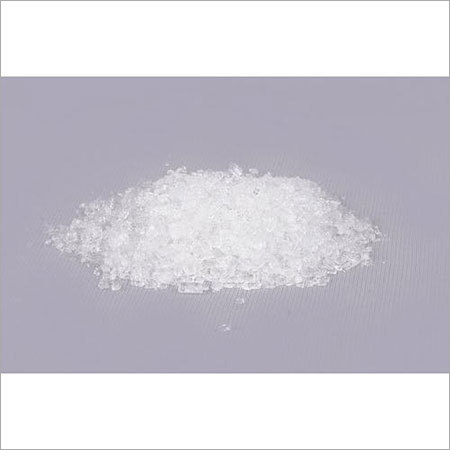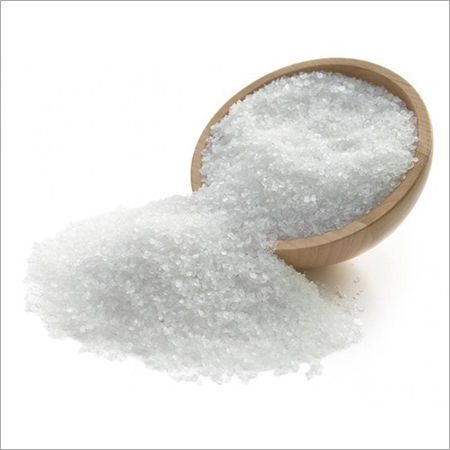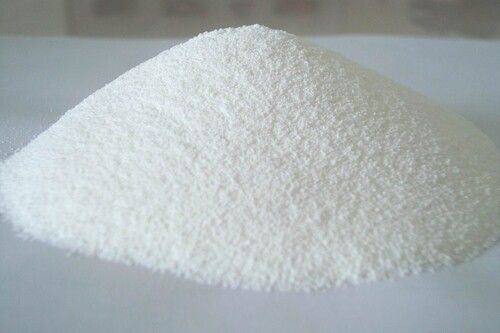Trusted company that deals in Quality-made products
Sodium Chloride AR
50 INR/Kilograms
Product Details:
- HS Code 28272000
- Application Pharmaceutical
- Product Type Sodium Chloride AR
- Shelf Life 5 Years
- Purity NLT 99.9%
- Solubility Solubility Soluble in Water
- Molecular Formula NaCl
- Click to View more
X
Sodium Chloride AR Price And Quantity
- 25 Kilograms
- 50 INR/Kilograms
Sodium Chloride AR Product Specifications
- Solubility Soluble in Water
- NaCl
- Solid
- 28272000
- Pharmaceutical
- NLT 99.9%
- 5 Years
- Sodium Chloride AR
- Food, Pharma, Nutra, Biotech,Cosmetics, Laboratory
- 7647-14-5
- Room Temperature
- AR
- Crystal
Sodium Chloride AR Trade Information
- Cash in Advance (CID) Cash Advance (CA)
- 2000 Kilograms Per Week
- 1 Week
- Yes
- Free samples are available
- 25 kg Polyethylene Bag With Inner Liner, Other packing on request Charge will be extra
- All India
- Halal / Kosher/ ISO 9001-2015/ FSSAI
Product Description
Sodium chloride is a chemical compound with the formula NaCl, representing a 1: 1 ratio of sodium ions (Na+) and chloride ions (Cl-). It is commonly known as table salt or simply salt. Sodium chloride is a crystalline salt that is colorless and odorless and is widely used in various applications.
Here are some key points about sodium chloride:
1. Composition: Sodium chloride is composed of sodium (Na) and chlorine (Cl) ions, which are held together by ionic bonds.
2. Occurrence: It is found abundantly in nature, especially in seawater, where it constitutes a significant portion of the dissolved salts. It is also found in underground deposits as rock salt.
3. Edible Salt: The most well-known use of sodium chloride is as a seasoning and preservative in food. It enhances the flavor of food and is essential for human health. However, excessive consumption of salt can lead to health issues, such as high blood pressure.
4. Chemical Properties: Sodium chloride is a stable compound with a high melting and boiling point. It is highly soluble in water, and its aqueous solution conducts electricity due to the presence of ions.
5. Industrial Uses: Sodium chloride has various industrial applications, including the production of chlorine and sodium hydroxide by electrolysis, as a de-icing agent on roads during winter, and in the manufacturing of various chemicals.
6. Medical Uses: It is used in saline solutions for medical purposes, such as intravenous fluids and nasal irrigation.
7. Chemical Reactions: While sodium chloride itself is not very reactive, its constituent ions (sodium and chloride) can participate in various chemical reactions. For example, chloride ions can undergo reactions like precipitation and redox reactions.
Sodium Chloride Properties:
1. Physical State and Appearance:
State: Sodium chloride is a crystalline solid at room temperature.
Color: It is typically colorless or white.
2. Solubility:
Solubility in Water: Sodium chloride is highly soluble in water, forming a clear and colorless solution. This high solubility is a characteristic property of ionic compounds.
3. Melting and Boiling Points:
Melting Point: The melting point of sodium chloride is approximately 801 degrees Celsius (1,474 degrees Fahrenheit).
Boiling Point: The boiling point is around 1,413 degrees Celsius (2,575 degrees Fahrenheit).
4. Density:
Density of Solid: The density of solid sodium chloride is about 2.165 g/cm3.
Density of Aqueous Solution: The density of a saturated sodium chloride solution is slightly higher than that of pure water.
5. Crystal Structure:
Sodium chloride has a face-centered cubic crystal structure.
6. Electrical Conductivity:
Sodium chloride in its solid state does not conduct electricity. However, in its molten state or when dissolved in water, it conducts electricity due to the presence of ions.
7. Odor and Taste:
Sodium chloride is odorless and has a characteristic salty taste. It is a primary source of the salty flavor in food.
8. Hygroscopic Nature:
Sodium chloride is hygroscopic, meaning it can absorb and retain water molecules from the surrounding environment.
9. Reactivity:
Sodium chloride is relatively stable and unreactive under normal conditions. However, its constituent ions (sodium and chloride) can participate in various chemical reactions.
Applications of Sodium Chloride:
1. Food Industry:
Seasoning: Sodium chloride is a primary seasoning and flavor enhancer in the food industry. It adds the characteristic salty taste to a variety of dishes.
Preservation: It is used in pickling and curing processes to preserve and extend the shelf life of food products.
2. Chemical Industry:
Chlorine and Sodium Hydroxide Production: Sodium chloride is a key raw material for the electrolysis process, which produces chlorine gas (Cl2) and sodium hydroxide (NaOH).
3. De-icing:
Road De-icing: Sodium chloride is commonly used as a de-icing agent on roads and sidewalks during winter to melt ice and snow, improving road safety.
4. Water Treatment:
Water Softening: Sodium chloride is used in water softeners to replace calcium and magnesium ions, which can cause hardness in water.
5. Medical and Pharmaceutical:
Saline Solutions: Sodium chloride is a major component of saline solutions used for medical purposes, such as intravenous fluids and nasal irrigation.
Wound Cleaning: It is used in sterile solutions for wound cleaning and irrigation.
6. Chemical and Biological Research:
Laboratory Reagent: High-purity sodium chloride is used as a reagent in laboratories, particularly in analytical chemistry.
7. Oil and Gas Industry:
Drilling Fluids: Sodium chloride is used in the oil and gas industry as a component of drilling fluids.
8. Textile Industry:
Dyeing and Printing: It is used in textile dyeing and printing processes.
9. Metallurgical Processes:
Metal Refining: Sodium chloride is used in certain metallurgical processes for metal refining.
10. Electroplating:
It is used in electroplating processes to provide a chloride ion source.
11. Animal Husbandry:
It is sometimes added to animal feed to provide essential minerals, particularly for livestock.
12. Cosmetics:
Sodium chloride is used in the formulation of various cosmetic products such as bath salts, exfoliating scrubs, and shampoos.
Sodium Chloride FAQ:
Q. What is sodium chloride?
Ans: Sodium chloride (NaCl) is a chemical compound commonly known as table salt. It consists of sodium ions (Na+) and chloride ions (Cl-) in a 1: 1 ratio.
Q. What is the common use of sodium chloride in households?
Ans: Sodium chloride is primarily used as a seasoning and preservative in cooking. It adds a salty taste to food and helps preserve certain foods.
Q. How is sodium chloride formed?
Ans: Sodium chloride is formed through the combination of the metal sodium (Na) and the non-metal chlorine (Cl) through ionic bonding.
Q. Is sodium chloride soluble in water?
Ans: Yes, sodium chloride is highly soluble in water. The resulting solution is clear and colorless.
Q. What is the melting point of sodium chloride?
Ans: The melting point of sodium chloride is approximately 801 degrees Celsius (1,474 degrees Fahrenheit).
Q. How does sodium chloride conduct electricity?
Ans: Solid sodium chloride does not conduct electricity, but when dissolved in water or in molten form, it dissociates into sodium and chloride ions, allowing the solution to conduct electricity.
Q. What are the industrial applications of sodium chloride?
Ans: Sodium chloride is used in the production of chlorine and sodium hydroxide, as a de-icing agent on roads, in water treatment, and in various chemical processes.
Q. Can sodium chloride be harmful?
Ans: While sodium chloride is essential for human health, excessive consumption can lead to health issues such as high blood pressure. In industrial settings, exposure to high concentrations can pose risks, and proper safety measures should be taken.
Q. What is the role of sodium chloride in medical applications?
Ans: Sodium chloride is used in the preparation of saline solutions for medical purposes, including intravenous fluids, wound cleaning, and nasal irrigation.
Q. How is sodium chloride involved in the softening of water?
Ans: Sodium chloride is used in water softeners to exchange calcium and magnesium ions with sodium ions, reducing water hardness.
Q. What are the environmental impacts of using sodium chloride as a de-icing agent?
Ans: The use of sodium chloride for de-icing can contribute to soil and water salinity, which may have environmental consequences. Alternative de-icing agents are sometimes used to mitigate these effects.
Q. Can sodium chloride be used in cosmetic products?
Ans: Yes, sodium chloride is used in the formulation of various cosmetic products, such as bath salts, exfoliating scrubs, and shampoos.
FAQs of Sodium Chloride AR:
Q: What is the purity of Sodium Chloride AR?
A: The purity of Sodium Chloride AR is not less than 99.9%.Q: What is the shelf life of Sodium Chloride AR?
A: The shelf life of Sodium Chloride AR is 5 years.Q: What is the molecular formula of Sodium Chloride AR?
A: The molecular formula of Sodium Chloride AR is NaCl.Q: In which applications can Sodium Chloride AR be used?
A: Sodium Chloride AR can be used in pharmaceutical, food, nutraceutical, biotech, cosmetics, and laboratory applications.Q: What is the storage condition for Sodium Chloride AR?
A: Sodium Chloride AR should be stored at room temperature.Enter Buying Requirement Details
 English
English Spanish
Spanish French
French German
German Italian
Italian Chinese (Simplified)
Chinese (Simplified) Japanese
Japanese Korean
Korean Arabic
Arabic Portuguese
Portuguese





 Send Inquiry
Send Inquiry Send SMS
Send SMS Call Me Free
Call Me Free